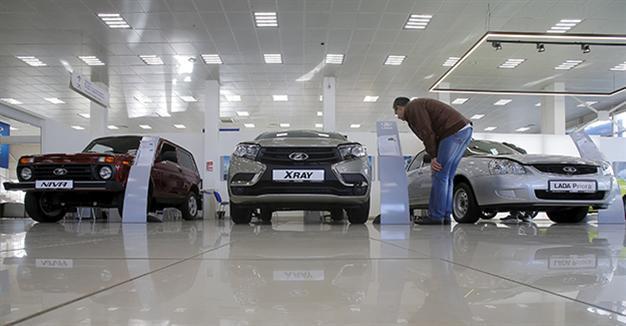Struggling Russia carmaker Avtovaz to get Dacia boss as new CEO
MOSCOW - Agence France-Presse

A visitor stands near Lada (L-R) Niva, XRAY and Priora cars produced by the Russian automobile maker Avtovaz, which are on sale at the 'AvtoGermes' dealership in Moscow, Russia, March 14, 2016. REUTERS Photo
Renault executive Nicolas Maure, who heads Romanian carmaker Dacia, will take over as CEO of struggling Russian automobile giant Avtovaz next month, the owners said in a statement March 15.
Frenchman Maure will take over on April 4, the statement said, after the departure of outgoing head Bo Andersson as the carmaker grapples with major losses in a Russian auto industry struggling with recession. “Avtovaz has modernized its lineup and manufacturing processes, and significantly improved product quality,” said Carlos Ghosn, Chairman and CEO of the Renault-Nissan Alliance, which has a majority stake in Avtovaz.
“With Nicolas Maure, we plan to continue on this strategy despite the short-term challenges, and we remain bullish about the long-term future of the Russian market and Avtovaz as the leading domestic automaker.” Russia’s biggest carmaker Avtovaz said on March 7 its Swedish chief executive Bo Andersson is to step down after major losses as the country’s auto industry struggles with recession.
Hit hard by Russia’s economic crisis, the company, which makes Lada cars, has been battling with bankruptcy fears since last month reporting a tripling of net losses for 2015.
The Russian car market slumped 36 percent in 2015 as international sanctions over Ukraine and the crash in oil prices took their toll on the economy.
Avtovaz suffered net losses that amounted to 73.8 billion rubles ($928 million, 847 million euros), nearly triple the 2014 figure of 25 billion rubles.
That sparked fears over the manufacturer’s survival and it admitted last month that current market conditions had helped cast doubt on the “group’s ability to continue as a going concern.”
